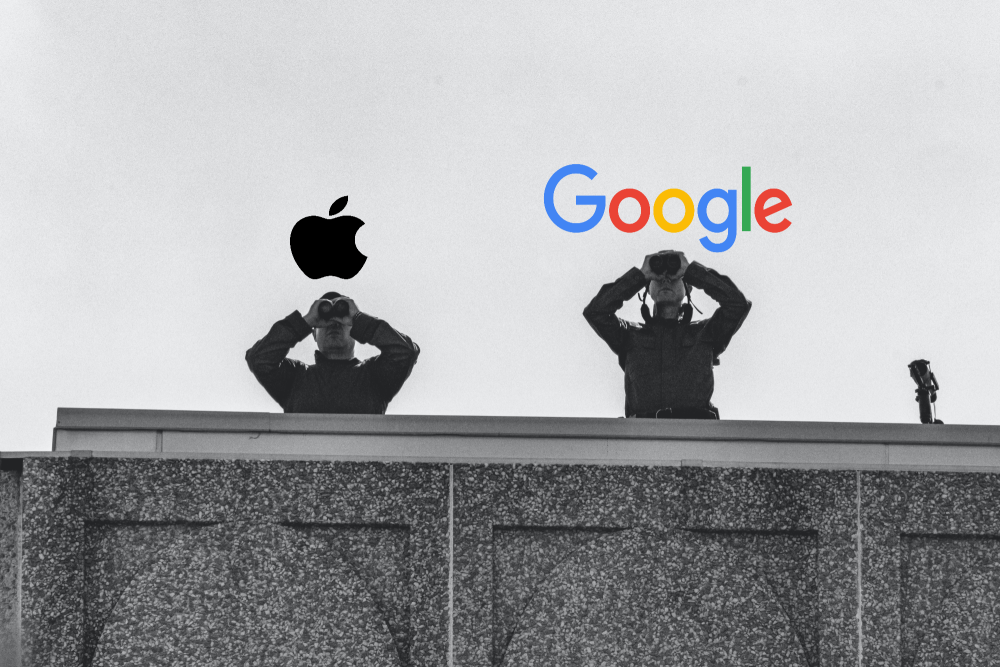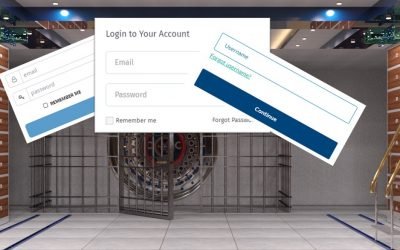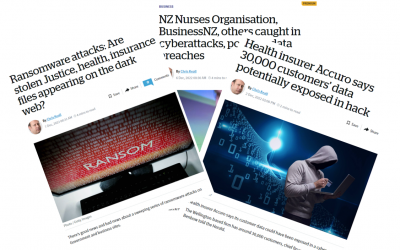Your own personalised stalker
It always seemed slightly creepy that your computer shows advertising that is strangely accurately targeted at things you might have been interested in. On the surface, that seems quite useful. If you have to tolerate ads on your screen, at least having them show things you were interested in seems helpful.
Instead, we wonder how the system knows. It feels like a breach of our privacy.
It all starts when you install an app, and it pops up a question asking for permission to use your location, and/or your camera and/or your microphone.
This is useful for advertisers. For example, they can use your location. If the app reports this back to the content provider, they can match up your location and compare you to other people nearby. If you tend to go to the same places as other people, you are probably interested in the same things, so an advertiser might use that assumption to present advertising to you, or other people that you spend time with.
That does sound a bit overreaching, but we reluctantly agree to the presented terms simply because we want to use the app. If that is a condition of use, and we want to use the app, then we agree.
So, now we are seeing consumers getting the choice to push back.

Apple
Now, with iOS15, Apple are saying that you will get to see what apps are accessing your data. You will be able to see when an app used that permission, and there it was sent to. Whether that list of third party sites is any use or not is meaningful is unclear.
Not quite as advanced but following quickly behind is Google Android. With Android 12, you will have the option to de-personalise your data. They will still track usage, but won’t link it back to you.
Is there any truth to the rumour that your phone or TV is listening to you, and presented content based on private conversations it overhears?
Given how poor the voice recognition is on phones , cars, or tools like Alexa or Siri, its pretty evident this can’t be reality. If it, is, then heaven only knows what it thinks it’s hearing. The voice recognition tools are getting better all the time, but there is a long way to go.
How cybersafe are you at home?
The NSA have released a ‘Cybersecurity Information Sheet’ for home networks. We know that home networks can range from simple to complex. You might have smart TVs, smart home lighting, Google Home, Alexa, alarms, cameras – the list goes on. These devices can be less...
Warning : Business Email Compromises skyrocket
The stats are in, and they are alarming! Business Email Compromise (BEC) attacks are up 81% in 2022! Small Medium Businesses often say to us that they don’t need to worry about cyber because they're not worth it for an attacker. Unfortunately, that’s incorrect. There...
Is automated Microsoft patching enough?
Microsoft have been releasing patches for 30 years. It’s easy to become blasé about them. Yes, Microsoft can automatically apply updates to Windows and Office. But that does not mean that you can rely on it. Any system is only as good as how well it is monitored....
Beware of “Pig-Butchering” – a new trend in Social Engineering
Where do these names come from? The latest trend is referred to as Pig-Butchering. The name comes from the Chinese underworld (shāzhūpán). The term refers to fattening up a pig, taking a longer-term view. They develop their target slowly, looking to get maximum...
What does the LastPass breach mean for you?
There have recently been a couple of well-publicised breaches of LastPass. Most people will be familiar with LastPass but in case you are not, it’s a well-known and popular password vault/manager.Does this mean you shouldn’t use a password vault? Absolutely not. YOU...
Are you making the most of your password manager?
Passwords are the basic protection for our various online accounts. It amazes me how basic some people’s passwords are. Passwords like, well ‘password’ or ‘123456’ are still commonly in use! In case that sounds unbelievable, here’s a list of the top 200 for...
Kinetics KARE clients – we’ve just added a layer of security
With the latest news of yet another local New Zealand high-profile cyber attack, it must be obvious that cyber-threats are real. EVERYONE is at risk of cyber attack! This latest incident is particularly close to home for me, because I chair the board of one of the...
Multifactor Authentication (MFA) gets even more secure!
Microsoft are making their authenticator even safer! Most of us will have experienced random pop-ups on authenticator asking us to approve access to our systems. We will have wondered what triggered it. Is it a hacker? Now we'll be able to get more information. Your...
Is your cyber-insurer testing your business?
Over the last month, we’d heard about this happening in the US and now it seems to be happening in NZ as well. Cyber insurers are working hard to mitigate their risk and that includes stepping up their testing of their clients. Right now, that appears to be more...
Is public WiFi safe?
Free public WiFi can be tempting.Whether it is in cafe, an airport or a shopping centre, free Wi-Fi is very tempting. Who wouldn’t want faster data, without the cost. But, as with anything that is free, be very careful! It is very easy to become a victim of something...









